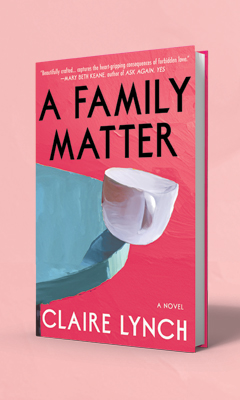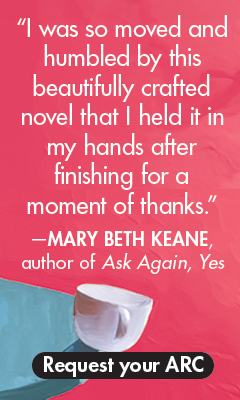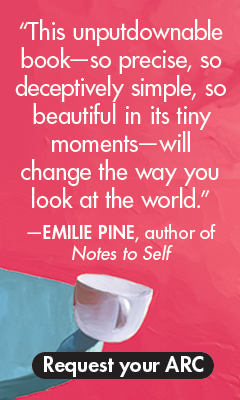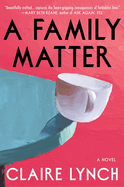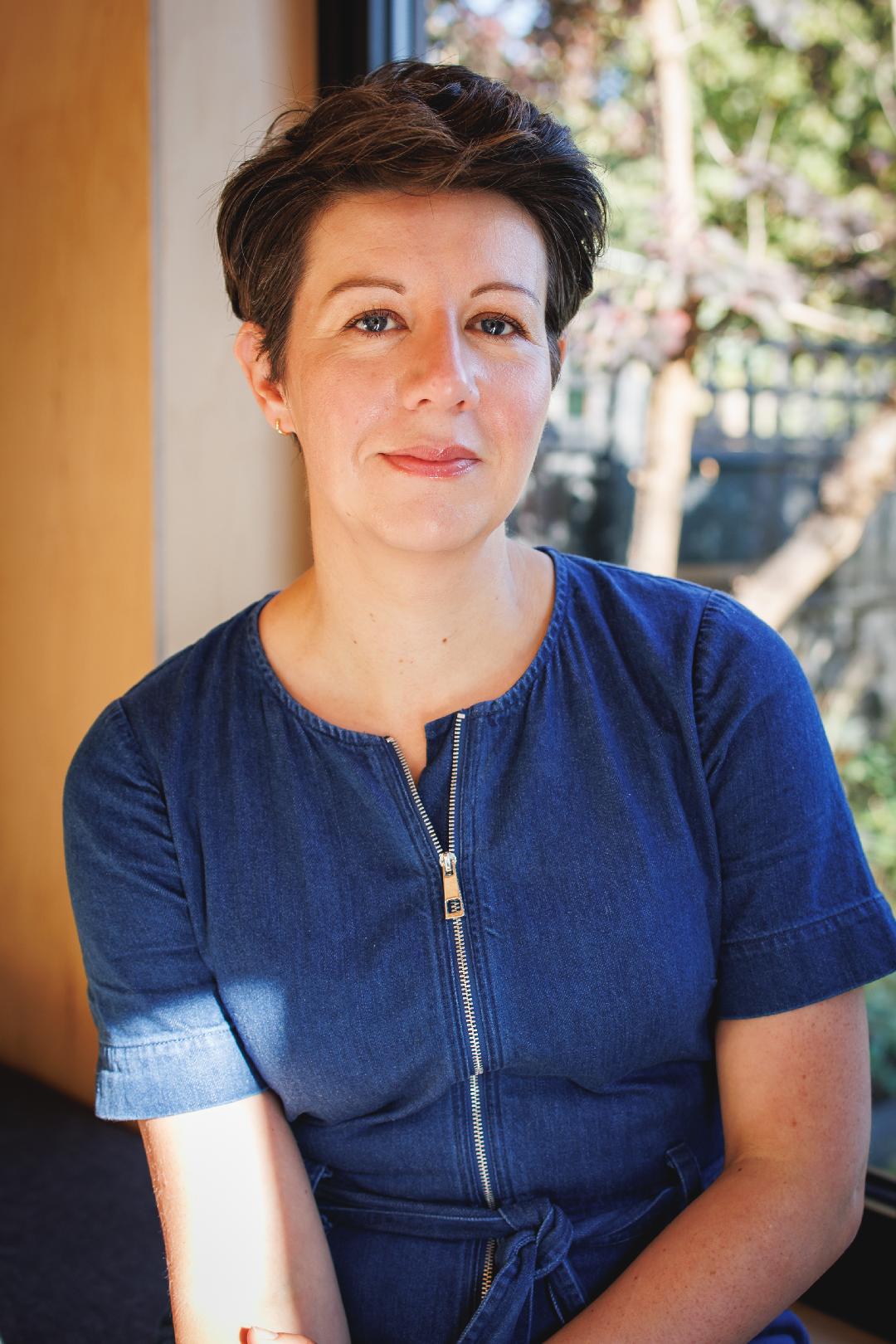A Family Matter
by Claire Lynch
Claire Lynch's debut novel, A Family Matter, follows a family during two timelines, 40 years apart: one set in 2022, the other in 1982. It is spare and direct and filled with beauty. In many ways, this is a love story between a father and daughter, depicting the ways they try to protect each other, and the pain that comes of hiding the truth.
A Family Matter opens in July 2022, just after Heron's doctor has told him he has cancer. The aging man drives to his favorite supermarket and climbs into a waist-high chest freezer. "There are things he will have to do now," Heron thinks, lying there with the lid slightly open. "Things he will have to say. Admit." A woman in search of frozen petit pois discovers Heron and screams.
Much of the strength of Lynch's exquisite novel derives from what is unsaid--by her and by her characters. She posits a enigma with those thoughts of Heron's; readers learn that his 43-year-old daughter, Maggie, is his sun and moon. There are things he will have to "admit" to her. But when he speaks to Maggie that evening, Heron mentions neither the hospital nor the supermarket: "Some things are best papered over, Heron thinks. For now."
Maggie, married to her college sweetheart, Conor, has a full-time job, a 14-year-old son, Tom, and an eight-year-old daughter, Olivia. Lynch's astute observations capture the complexity of a person in a few sentences. Maggie thinks, "There ought to be more to life than washing machines and emails and remembering to put out the recycling on the right day. But life is also this. It is all of this." Through perceptions like these, Lynch draws a parallel between Maggie and the mother who left when Maggie was three.
The July 1982 timeline begins with 23-year-old Dawn, whom readers soon learn is Maggie's mother, at a church jumble, where she combs through tables of clothing and finds an Aran cardigan. There she meets Hazel, who appreciates her taste. Soon they are meeting up day after day, "a coincidence, Hazel claimed." "It was in August that Dawn realised it wasn't Hazel's haircut, or the things she talked about, that she liked. It was the way she changed the air as she moved through it." Dawn falls in love with Hazel.
Lynch lets small details through, little by little, as she steers the story with strength and elegance. She allows readers to see Heron, Dawn, Maggie, and their fierce love and loyalty in three dimensions, and the ways in which they are all constrained by society. Because there are things readers know before Maggie does, it brings an urgency to how Maggie will respond when she learns the truth.
There are no villains here--unless one counts time and place and society's reluctance to progress and to integrate the full range of humanity. Lynch lays bare the evolution of ideas and values in a wonderful conversation between Heron and Maggie's son: "Did you ever worry about the world?... When you were my age?" He asks Heron about war, politics, climate change. Heron "is forced to admit that, no, he didn't really. Not the climate change part anyway, which is exactly the point, he supposes." And in another conversation, Hazel asks Dawn, "You wanted to collect the set, the wedding, the house, the baby?" She replies, "I didn't know you were allowed not to."
Lynch paints a sharp picture of 1982 England, as Heron fears the court will take Maggie away if he doesn't divorce Dawn. He can't see any way to keep Dawn in Maggie's life and still keep Maggie. His lawyers warn that social services will make the decision for him: they'll take the child from Heron and Dawn because of her relationship with Hazel. And after Maggie learns the truth about her mother, Heron hopes "she must understand, that this was the difficult thing about life. The way things changed, became wrong over time, or revealed themselves to be."
Dawn and Heron grew up in a small town, knowing everyone, and everyone knowing them. What happens when everything you know is lost to you? Dawn, Heron, and Maggie all must live the answer to this question, each in their own way. Readers will find themselves catching their breath at the truth and beauty of many of Lynch's sentences. Through her characters, Lynch shows her audience that love between people may change or plateau or grow by leaps and bounds, but as long as they want to keep it, they will. After Maggie has told her children that their grandfather is dying, she looks at her family: "She cannot remember now if she imagined being a mother when she was a little girl, she could not, surely, have imagined anything like this. The oddness of being in love with people who become less and less known to you each year." Through these memorable characters, Lynch explores the possibilities of forgiveness and growth, both in individuals and in society.
A Family Matter is a gem of a novel, an appreciation of the small moments of connection that last a lifetime. --Jennifer M. Brown



